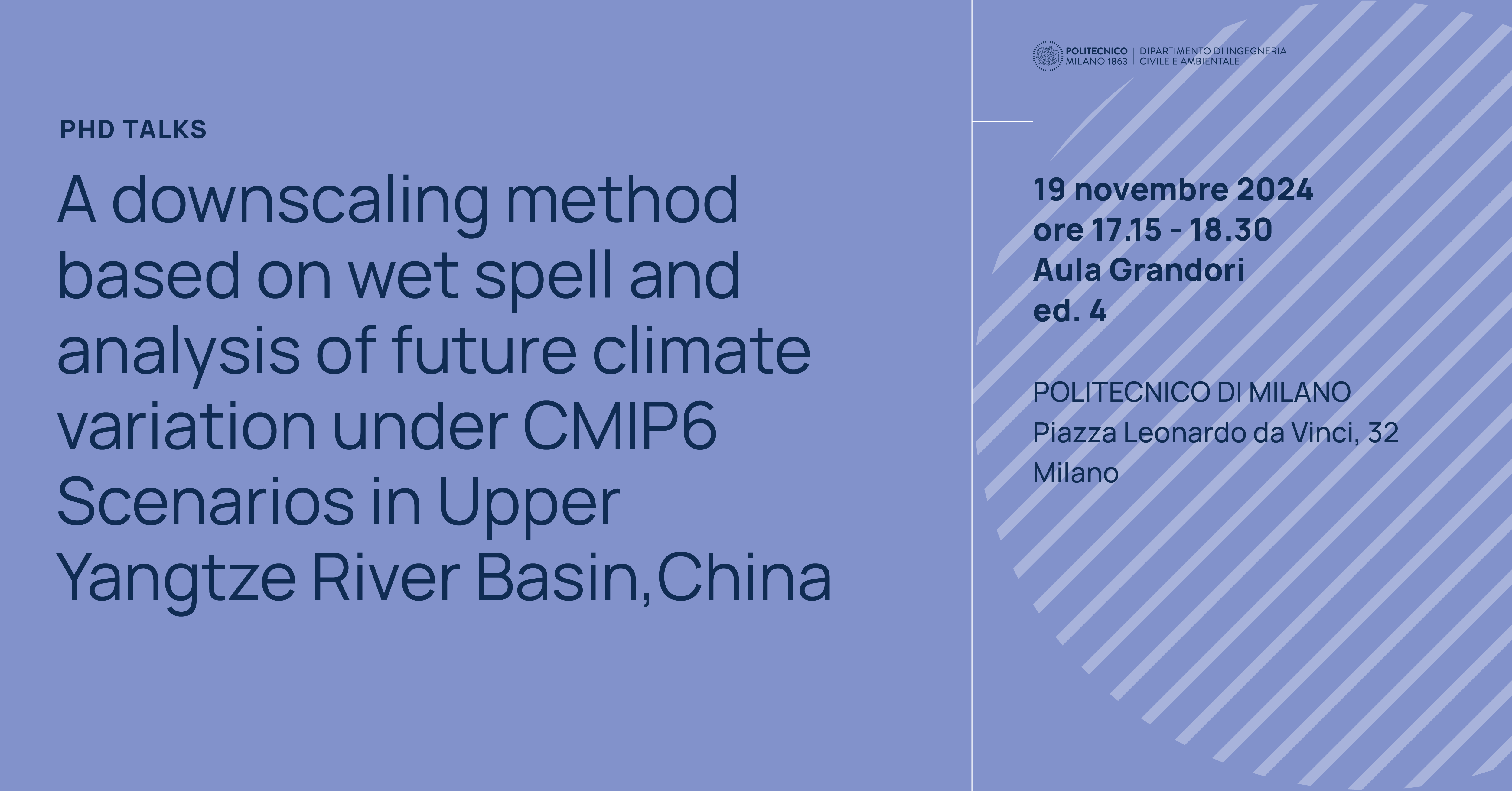
- Questo evento è passato.
PhDTalks | A downscaling method based on wet spell and analysis of future climate variation under CMIP6 Scenarios in Upper Yangtze River Basin, China
19 Novembre 2024 @ 17:15 - 18:30

Il prossimo appuntamento con la serie di incontri PhDTalks si terrà Martedì 19 novembre nell’aula Grandori (Edificio 4), dalle 17:15 alle 18:30 CET.
PhDTalks è una serie di seminari e discussioni tra dottorandi. Gli eventi hanno lo scopo di fornire un luogo dove creare un network tra dottorandi ed entrare in contatto con i molti progetti sviluppati nel nostro dipartimento.
Lo speaker Xu Han condurrà un seminario dal titolo “A downscaling method based on wet spell and analysis of future climate variation under CMIP6 Scenarios in Upper Yangtze River Basin, China”.
Al termine dell’evento sarà disponibile un piccolo rinfresco finanziato dal dipartimento.
Sarà possibile seguire la conferenza anche online al seguente link.
Abstract
According to recent studies, the past decade was the hottest on record, and climate change is speeding up. As the largest basin, and the primary source of hydropower in China, the impact of climate change on the Upper Yangtze river Basin (UYRB) is particularly crucial. We downscaled GCMs’ outputs of precipitation (wet/dry spells considered to reduce GCMS wet days overestimation) and temperature projections (2024-2100), under four typical Shared Socioeconomic Pathways (SSPs), and we pursued a trend analysis on these potential future climate projections. We found significant trends of precipitation in all months, unless for August, across all socioeconomic pathways. This could lead to future heatwaves, and droughts. Additionally, for SSP370 and SSP585, there were no significant trends of precipitation in December, but there were significant upward trends in temperature. This may result in drier winters than now, increased potential evapotranspiration, and reduced surface (snow) water storage, impacting water resources availability. Consecutive dry/wet days at station, and basin scale show spatial-temporal heterogeneity, but generally wet spells are longer, and dry spells shorten moving from S-E to N-W. In addition, we carried out a comprehensive evaluation of past (1980-2014) monthly, and annual climate output of chosen models.
Speaker’s bio
My name is Xu Han, my hometown is in Handan, northern China, not far from Beijing. I came to Italy to study in 2021. My research is mainly related to meteorology and hydrology, specifically climate change, model evaluation, downscaling methods, extreme weather, etc.
I like traveling, music, movies, running
